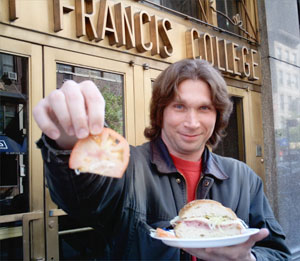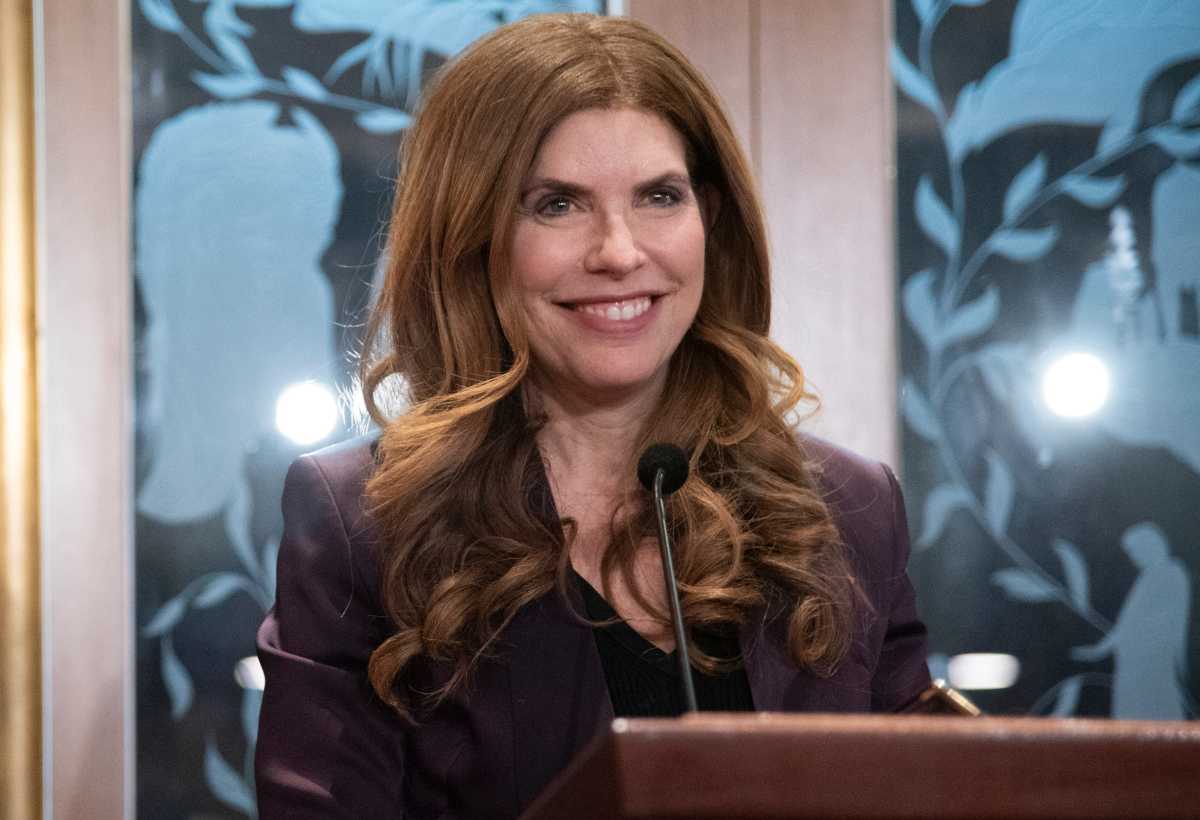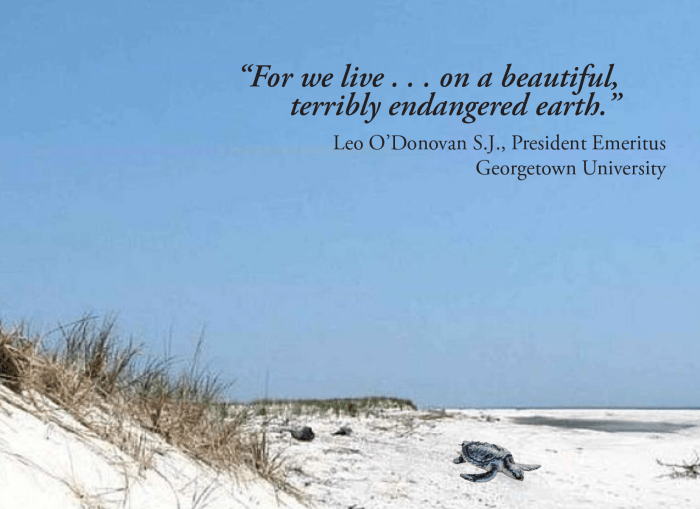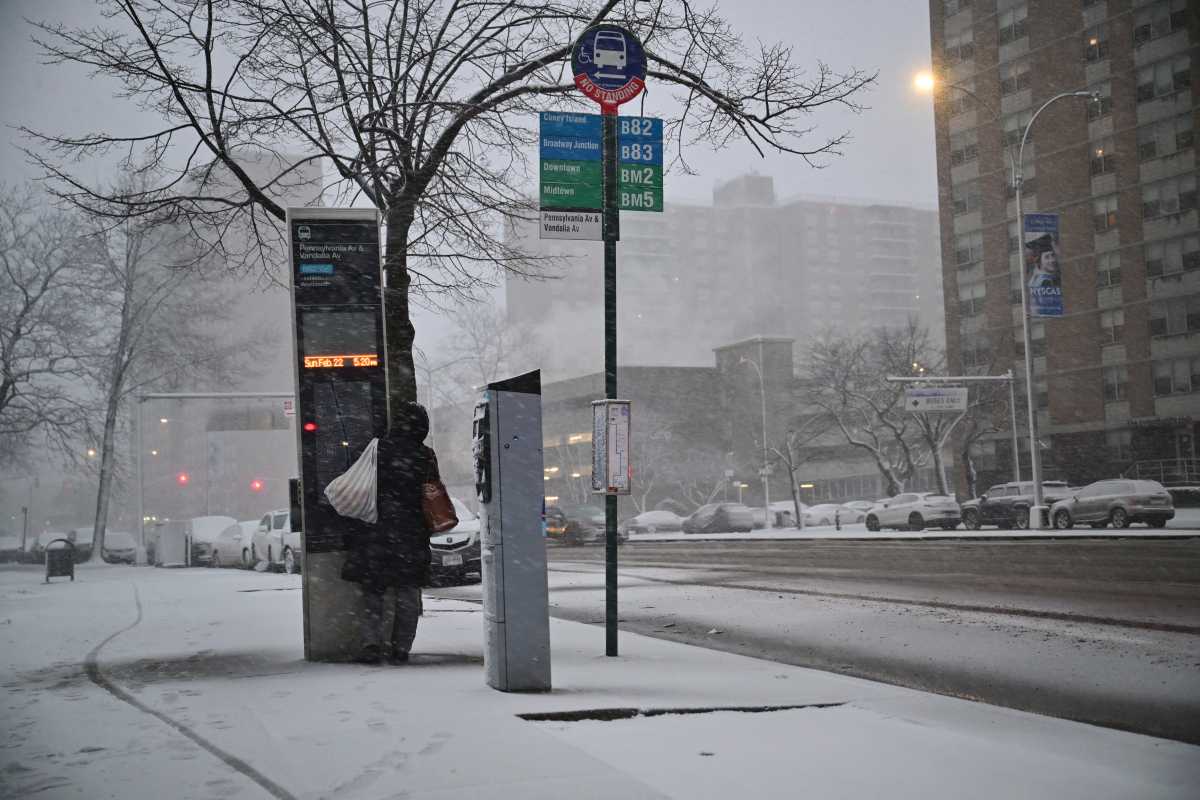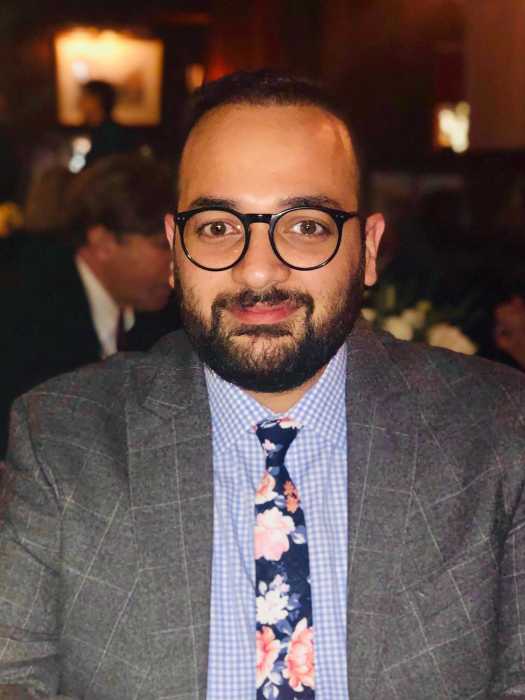Somewhere, Francis Delaney is tossing and turning in his grave. More than five decades ago, Delaney was a titanic figure at Brooklyn Heights’s St. Francis College — a champion of oral communication who was part Professor Kingsfield and part Henry Higgins (with a little Peter O’Toole thrown in, but that’s between him and the bartenders of Montague Street).
While at St. Francis, Delaney’s mission was to break his mostly working-class, mostly Brooklyn native, all-male students of their accents so they could take their fancy degree to Wall Street and not lose the job when they opened their mouths and started spitting out “dese” and “dose.”
“He sent those boys to interviews and they held their own,” said Professor Timothy Dugan, one of Delaney’s spiritual heirs.
After turning many an inarticulate Brooklyn boy into an upwardly mobile Manhattanite, Delaney funded an annual speech contest at the Remsen Street college.
The contest was held last week and nearly a dozen students participated. To paraphrase another great orator, forgive them, Brother Delaney for they know not what they say.
In a world where most communication consists of clipped e-mails, inexplicable teenage abbreviations (“IMHO” anyone?) and emoticons, perhaps it was wrong of me to expect Lincolnesque oration.
But if not Lincoln, could I have at least gotten a Ford? After all, there was $850 in prize money on the line.
One kid started out well enough, bemoaning how our society has “lost sight of virtue,” but then stumbled over St. Thomas Aquinas’s four principles, a somewhat unforgivable sin, given the setting (and less forgivable still, given his karate-club T-shirt).
Another student made a global warming presentation so convoluted that it made Al Gore sound like a paragon of brevity. “The Chinese, Japanese and Koreans aren’t going to ride around in those small cars forever,” he said. “They’re going to want Escalades, too.” It sounded like he was advocating it, not bemoaning it.
Styles ranged from machine gun fire — as with the young woman who spoke of adoption fraud and suggested that “therearebooksyoucanreaduponthisanditwillnothappen” — to the choppy tone of an Internet connection that keeps buffering (one speaker complained about what a poor job the “Immigration and Neutralization Service” is doing securing our borders!).
But the standout speaker was, of course, Austin Collins. Donning a crisp red T-shirt and a Mad-magazine grin, Collins gave a five-minute jeremiad about New York’s rat problem.
“They eat, pretty much from what I understand, 250 million tons of food a day,” he said. “If you want to trap them, pretty much the best way is the old-style rat trap.” Collins walked off with third place, a $100 prize.
Far and away the best speaker was Brendan Gorman, who offered a passionate attack on student apathy. I was briefly lifted by the strength of Gorman’s words, but he lost me about midway through his five-minute attack on apathy. Eventually, I didn’t care what he was saying, which isn’t great in a speech against apathy.
The winning speech was delivered by Jeremy Busch, who argued that our culture of privacy was partly to blame for the Virginia Tech tragedy. Busch argued clearly and cogently, though he did make the mistake that has become epidemic: Privacy rights, he said, don’t extend to college students if “the child can be claimed on their parents’ tax return.”
It’s “his or her,” not “their”! Doesn’t anyone believe in subject agreement anymore?
Then again, Busch probably has a bright future ahead of him. After all, Dugan said, St. Francis graduate Frank Macchiarola got a B in speech — and he went on to be Schools Chancellor and, eventually, president of St. Francis College.


